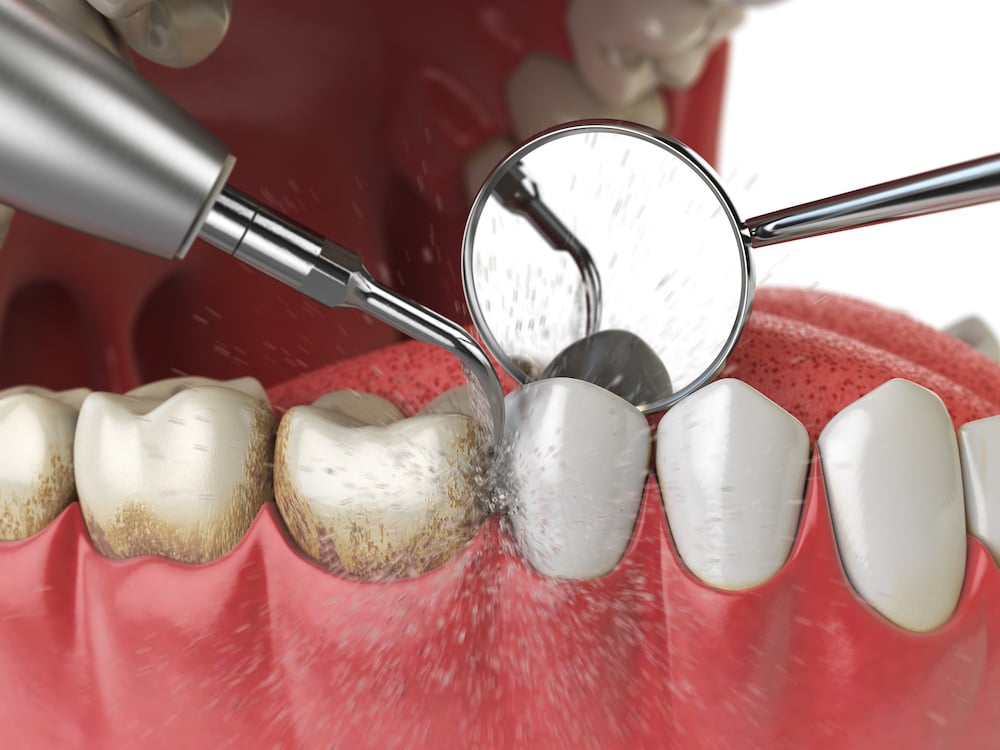How does teeth cleaning help prevent cavities? Regular teeth cleaning plays a crucial role in cavity prevention. Cavities, or tooth decay, are caused by the buildup of plaque and bacteria on your teeth, which produce acids that can damage tooth enamel. Professional teeth cleaning removes plaque, tartar, and food particles that regular brushing might miss, reducing the risk of cavities. In this article, we’ll explore the connection between Teeth Cleaning Treatment and cavity prevention and why maintaining a regular cleaning schedule is essential for oral health.
The Role of Plaque in Cavity Formation:
Plaque is a sticky, colorless film of bacteria that forms on your teeth throughout the day. If not removed through proper brushing and flossing, plaque hardens into tartar, which can only be removed by a dentist or hygienist. Plaque and tartar both contribute to cavity formation.
- Plaque buildup: If plaque is not removed, it can combine with sugars and food particles in your mouth to produce acids that attack tooth enamel.
- Tartar formation: Plaque that hardens into tartar creates a rough surface where bacteria thrive, increasing the risk of cavities.
- Increased acid production: The bacteria in plaque and tartar continue to produce acids that break down tooth enamel, leading to the formation of cavities.
Teeth cleaning removes plaque and tartar from your teeth, reducing the risk of these acids causing cavities and tooth decay.
How Professional Teeth Cleaning Prevents Plaque Buildup?
Teeth cleaning, also known as prophylaxis, involves a thorough cleaning performed by a dental professional to remove plaque and tartar from above and below the gumline.
- Scaling: During the cleaning process, a dental hygienist uses special instruments to scale away plaque and tartar that accumulate on the teeth and gums.
- Polishing: After scaling, the teeth are polished to remove any remaining plaque and smooth the enamel. This smooth surface makes it harder for plaque to accumulate in the future.
- Prevention of further buildup: Regular cleanings prevent the cycle of plaque buildup, which can eventually lead to cavities.
By removing plaque and tartar, teeth cleaning reduces the factors that contribute to cavity formation, keeping your teeth healthy and cavity-free.
Teeth Cleaning and Gum Health: Preventing Cavities:
In addition to preventing cavities, regular teeth cleaning also plays an important role in maintaining healthy gums, which in turn helps prevent cavities.
- Gum disease prevention: Plaque and tartar buildup can irritate the gums, leading to gingivitis and, if left untreated, periodontal disease. Gum disease weakens the gums and bone structure around teeth, making them more prone to cavities.
- Healthier gums protect teeth: Clean, healthy gums help keep your teeth in place and support tooth enamel, reducing the likelihood of cavities forming.
- Better overall oral hygiene: Healthy gums provide a foundation for better oral hygiene, as they help prevent bacteria from entering deeper into the tooth structure.
Maintaining good gum health through regular cleanings helps protect your teeth from decay and enhances overall oral hygiene.
Fluoride Treatments and Cavity Prevention During Teeth Cleaning:
Many Teeth Cleaning also include a fluoride treatment, which strengthens tooth enamel and helps protect against cavities.
- Fluoride application: After cleaning, a dentist or hygienist may apply a fluoride gel, foam, or varnish to the surface of your teeth.
- Enamel strengthening: Fluoride helps remineralize weakened areas of tooth enamel, making it more resistant to cavity-causing acids.
- Long-lasting protection: Fluoride can offer long-lasting protection against cavities, especially for individuals who are at higher risk of developing tooth decay.
Fluoride treatments during teeth cleaning are an extra layer of defense against cavities, providing added protection for your teeth.
Regular Teeth Cleanings for Long-Term Cavity Prevention:
In conclusion, teeth cleaning helps prevent cavities by removing plaque and tartar, reducing bacterial buildup, and ensuring that your teeth remain healthy and strong. Regular cleanings not only keep your teeth and gums in good condition but also reduce the risk of cavities and other oral health issues.
- Routine cleanings every six months help prevent plaque and tartar buildup.
- Scaling and polishing remove harmful substances that contribute to cavities.
- Fluoride treatments strengthen tooth enamel and offer added cavity protection.
- Healthy gums protect your teeth and reduce the risk of decay.
- Long-term oral health is supported through regular professional cleanings.
By maintaining a consistent schedule of professional teeth cleanings, you can significantly lower your chances of developing cavities and ensure a brighter, healthier smile for years to come.

